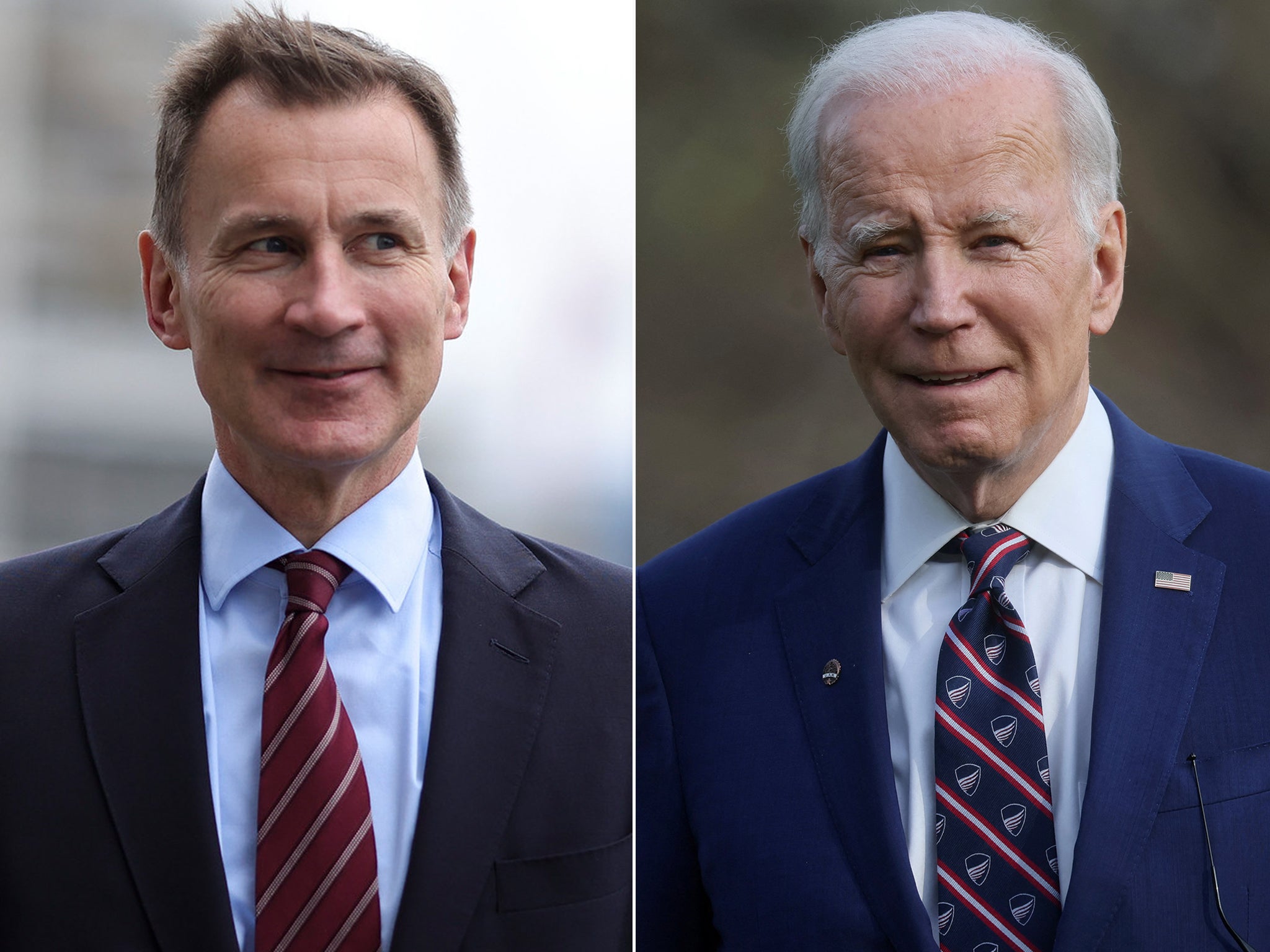Do we believe in free trade or in green subsidies?
The confusion over green protectionism reflects doubts among voters about their willingness to pay to slow down climate change, writes John Rentoul


Jeremy Hunt says that Britain will not go “toe-to-toe” with the United States, which is about to destabilise world trade with $369bn of green subsidies in Joe Biden’s Inflation Reduction Act (IRA).
But in the same article the chancellor boasts that Britain has already spent more on green investment in the past two years than Biden’s IRA, “relative to the size of our respective economies”. It would seem that “we” invest in green growth; “they” engage in a “distortive global subsidy race”.
He warns against “the threat of protectionism creeping its way back into the world economy”, but seems to be boasting at the same time that we started it.
If Hunt seems unsure of whether he is coming or going, he is not alone. The opposition seem undecided whether to support Hunt’s attack on green protectionism or to complain that the government lacks ambition in its claim to have done more of it.
David Lammy, the shadow foreign secretary, this week appeared to support Kemi Badenoch, the trade secretary, in her lobbying the US against the discriminatory effects of the IRA on British business. Ed Miliband, the shadow energy secretary, on the other hand, said in a speech on Tuesday: “We should match the ambition of President Biden’s Inflation Reduction Act and stop moaning about it.” He said it was “defeatism” to suggest that Britain could not compete with the US, the EU and China, all of which are planning big green subsidies.
Miliband is engaged in a struggle behind the scenes with another of his shadow cabinet colleagues, trying to preserve Labour’s Green Prosperity Plan, a legacy from the vast borrow-to-invest ambitions of the Jeremy Corbyn era that is threatened by the colder post-coronavirus fiscal climate.
The plan does indeed come close to matching the ambition of Biden’s IRA: it is a pledge to borrow an extra £28bn a year, or £140bn over a five-year parliament – the IRA is a commitment of $369bn (£300bn) over 10 years. But the fate of Labour’s pledge hangs in the balance.
Rachel Reeves, the shadow chancellor, recently accepted that it was “subject to” her fiscal rules, which include a rule to keep debt under control. And she has not yet said that a Labour government would abide by a new rule invented by Hunt to limit annual borrowing to 3 per cent of the economy.
Miliband tried to tie Reeves to the pledge by praising her in his speech: “Our shadow chancellor Rachel Reeves has shown such vision on this issue. It was Rachel who announced our commitment to £28bn a year extra green investment at the party conference 18 months ago. Rachel has been instrumental in putting our Green Prosperity Plan at the centre of our mission for government.”
But he is likely to come up against the political reality that Reeves and Keir Starmer will be reluctant to go into an election promising to borrow more than the government – even if it is to “invest” in green things that voters say they like when presented with superficial opinion-poll questions.
In fact, voters are ambivalent about paying to fix climate change and sceptical about politicians who tell them that greenery is a cost-free, job-creating option. The argument that Britain must borrow to invest in green tech because the US, the EU and China will beat us in the race would be a good one only if those big players invest in technologies that end up paying for themselves.
Maybe they will, but some scepticism is required. Until the benefits of green investment are proven, the debate about green subsidies is likely to resemble the arguments about free trade that dominated British politics before and after the First World War. Protectionism always seemed superficially popular, but in the end free trade usually won out because it meant cheaper goods for the British people.



Join our commenting forum
Join thought-provoking conversations, follow other Independent readers and see their replies
0Comments